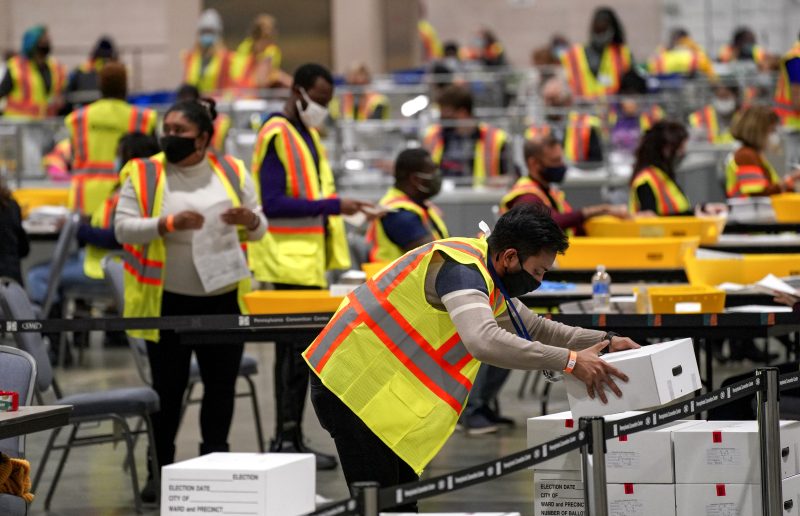In a move that has sparked controversy and legal battles, Trump Republicans are actively pushing swing state courts to reject mail-in ballots. This effort comes as part of a larger strategy to challenge the validity of mail-in voting in the upcoming election.
One of the key arguments being put forth by Trump Republicans is the potential for fraud in mail-in balloting. They claim that mail-in ballots are more susceptible to tampering or manipulation compared to traditional in-person voting. However, experts have repeatedly stated that there is very little evidence of widespread voter fraud in mail-in voting systems.
Another argument being made by Trump Republicans is that mail-in voting could lead to delays in determining the election results. With the unprecedented number of mail-in ballots expected this year due to the ongoing pandemic, there are concerns that the counting process could stretch on for days or even weeks after Election Day. This, they argue, could create uncertainty and undermine the integrity of the electoral process.
Critics of the Trump Republicans’ efforts to reject mail-in ballots argue that this is a blatant attempt to suppress votes and disenfranchise certain groups of voters, particularly those who may be more inclined to vote by mail, such as elderly voters or individuals with health concerns. They see this as a dangerous precedent that could undermine the democratic process and erode public trust in the electoral system.
In response to these challenges, swing state courts are being called upon to weigh in on the legality and validity of mail-in ballots. Legal experts are closely monitoring these cases and expect that the courts will play a crucial role in determining the outcome of the election.
The outcome of these legal battles could have far-reaching implications for the future of mail-in voting and the electoral process in the United States. As the country grapples with the challenges of conducting an election during a global pandemic, it is essential that all eligible voters have the opportunity to cast their ballots safely and securely, whether by mail or in person.
In the end, the decision to accept or reject mail-in ballots will have a direct impact on the integrity of the election and the democratic principles that underpin the American political system. It remains to be seen how swing state courts will rule on this contentious issue, but one thing is clear: the outcome of these legal battles will shape the future of U.S. elections for years to come.

